Are you passionate about making a difference in your community through clean water initiatives? Crafting a compelling grant proposal can be your first step toward securing the funding needed to bring your vision to life. In this article, we'll explore essential tips and a customizable letter template designed to help you articulate your project's impact effectively. Join us as we dive into the details and learn how to enhance your chances of success!
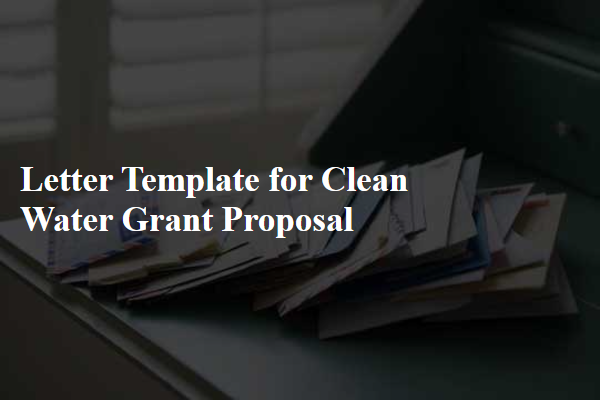
Introduction and Purpose
Access to clean water serves as a fundamental necessity for human health and well-being. Communities around the globe, particularly in developing nations such as sub-Saharan Africa, face challenges due to contaminated water sources. Every year, approximately 2 million children under five die from waterborne diseases, highlighting the urgent need for elevated sanitation and safe drinking water initiatives. This proposal aims to address these critical issues, seeking funding to implement a comprehensive clean water project. The initiative will target underserved regions, utilizing sustainable filtration technology and community education programs for effective water management. By enhancing access to clean water, we aspire to improve public health outcomes, promote environmental sustainability, and empower local communities through education and involvement.
Project Description and Objectives
The Clean Water Initiative aims to improve access to safe and potable drinking water in underserved communities, particularly in rural areas of Appalachia. This project targets a population of approximately 5,000 residents who currently rely on contaminated wells and inadequate water treatment facilities. Objectives include constructing two new water purification systems using advanced filtration technology to remove harmful contaminants such as arsenic (with safe levels being below 0.01 mg/L), installing community rainwater harvesting systems that can collectively store over 100,000 gallons of clean water, and providing educational workshops about water safety and hygiene practices within the community. These efforts strive to reduce waterborne diseases and enhance overall public health indicators while fostering sustainable usage of local water resources.
Budget and Funding Requirements
A comprehensive budget for clean water initiatives typically includes expenses related to project implementation, staffing, equipment procurement, and community education. For instance, personnel salaries may account for approximately 30% of the total budget, necessitating funding for water quality specialists and outreach coordinators. Equipment costs, including water testing kits and filtration systems, can range from $5,000 to $50,000 depending on project scale and technology selected. Community education programs, essential for promoting water conservation and hygiene practices, might require an investment of $10,000 to $20,000 for materials, workshops, and outreach activities across targeted neighborhoods. Additionally, ongoing operational costs, such as maintenance of infrastructure and continual monitoring of water quality, should be factored in to ensure sustainability, estimated at around 15% of annual funding requirements. Consequently, a detailed funding request might total anywhere from $200,000 to $500,000 depending on the scope of the clean water project and its intended impact on local communities.
Sustainability and Impact Assessment
Ensuring sustainable access to clean water in rural communities requires a comprehensive approach to project planning and evaluation. The proposed initiative, aimed at improving water quality in areas lacking infrastructure, will be implemented in regions such as the Southern Highlands of Tanzania, where over 3 million people currently lack access to safe drinking water. Each phase, including community engagement and system installation, will focus on integrating local knowledge with modern water purification technologies, such as solar-powered filtration, to enhance long-term viability. To assess impact, a detailed monitoring framework will be established, incorporating key performance indicators such as maintenance frequency, user satisfaction rates, and health outcomes measured through reduced incidences of waterborne illnesses like cholera and dysentery. Regular feedback loops from community stakeholders will inform ongoing adjustments, ensuring the project's adaptability and effectiveness in promoting sustainable clean water access vital for enhancing public health and economic productivity.
Contact Information and Qualifications
Successful clean water grant proposals often include a comprehensive overview of the organization's contact information and qualifications. This section should feature essential details such as the organization's official name, physical address, phone number, and email address, facilitating easy communication. Qualifications must highlight previous successful projects related to water quality improvement, detailing specific achievements such as partnerships with local environmental organizations or government agencies. Notable experiences might also include participation in community outreach programs or environmental education initiatives, demonstrating a commitment to sustainability and public health. Credentials of team members, such as degrees in environmental science or public policy, along with relevant certifications, can further strengthen the proposal's credibility and show the organization's capacity to effectively manage the grant funding.

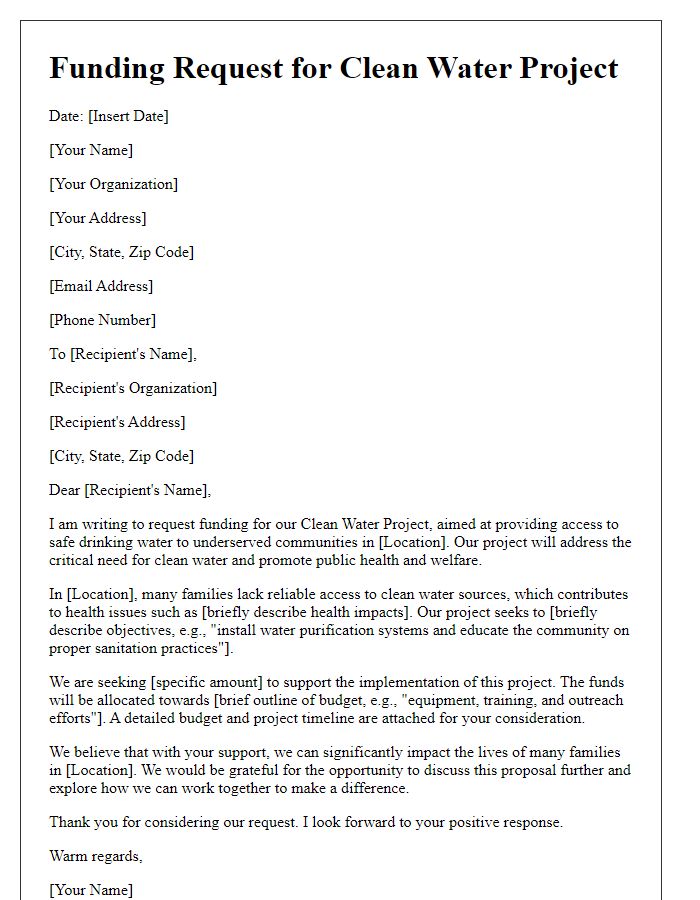
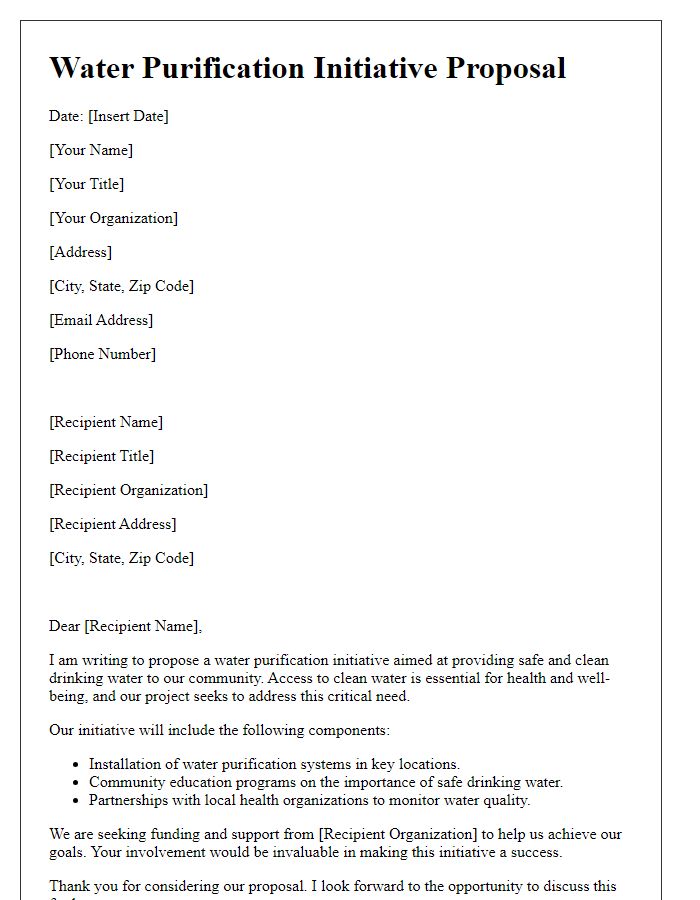
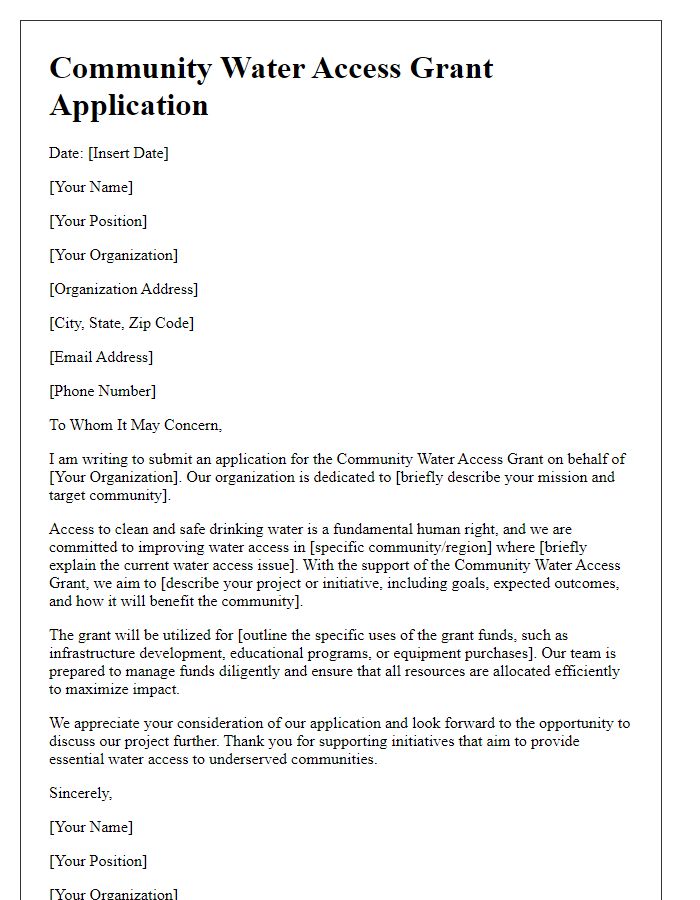
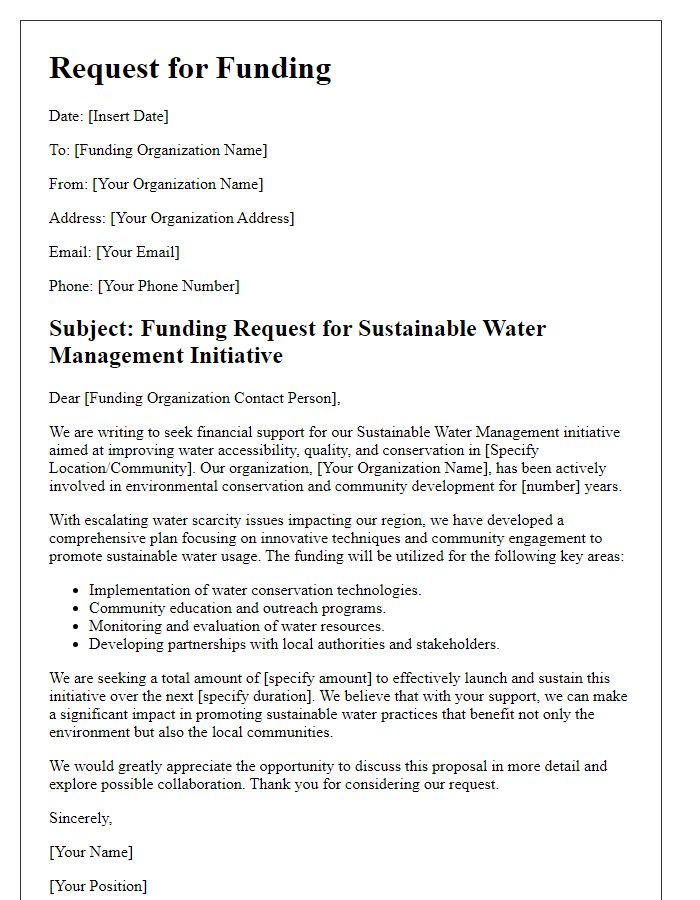
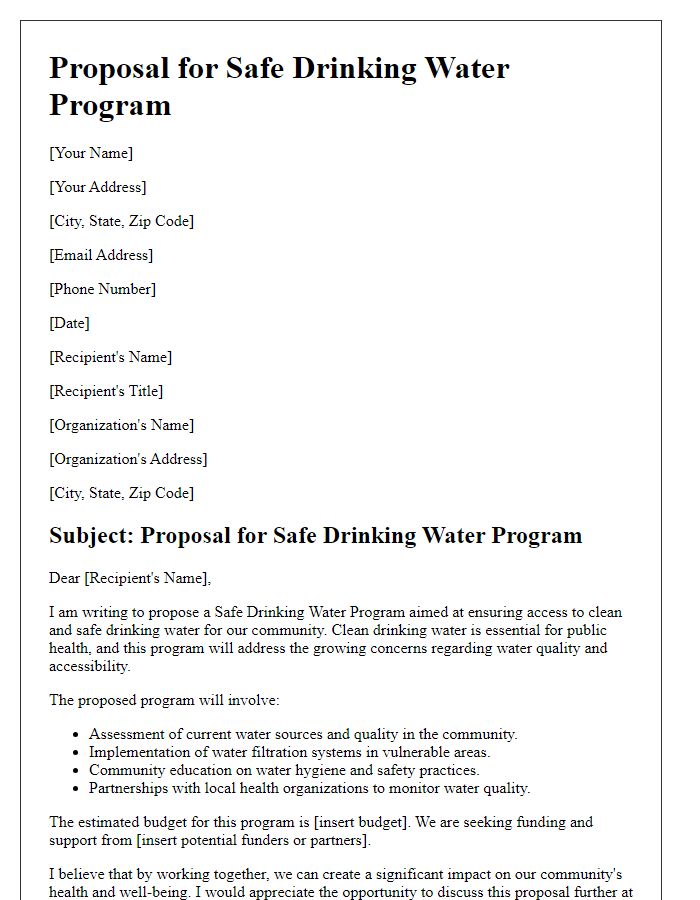
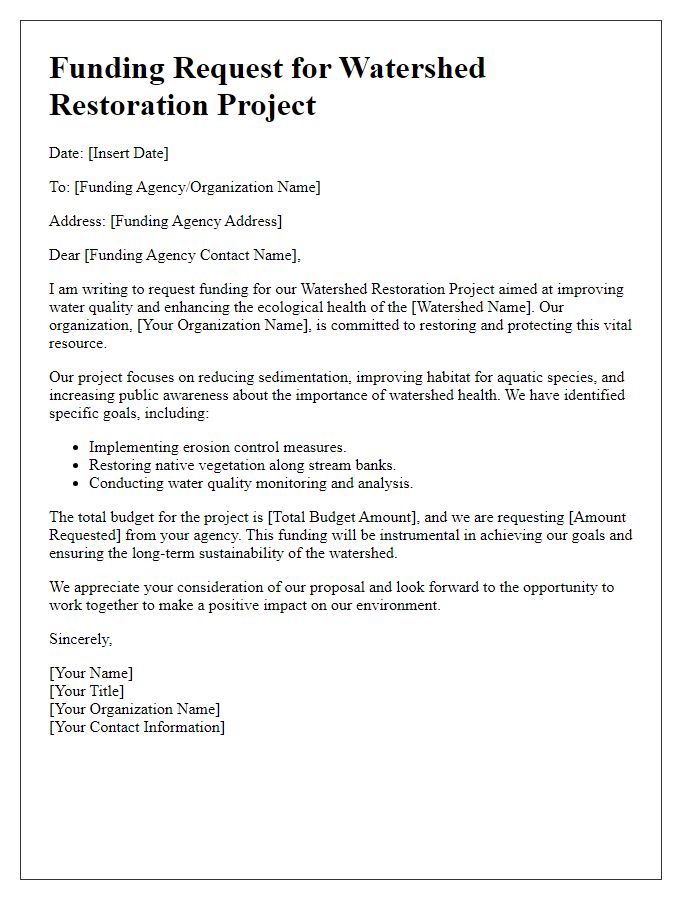
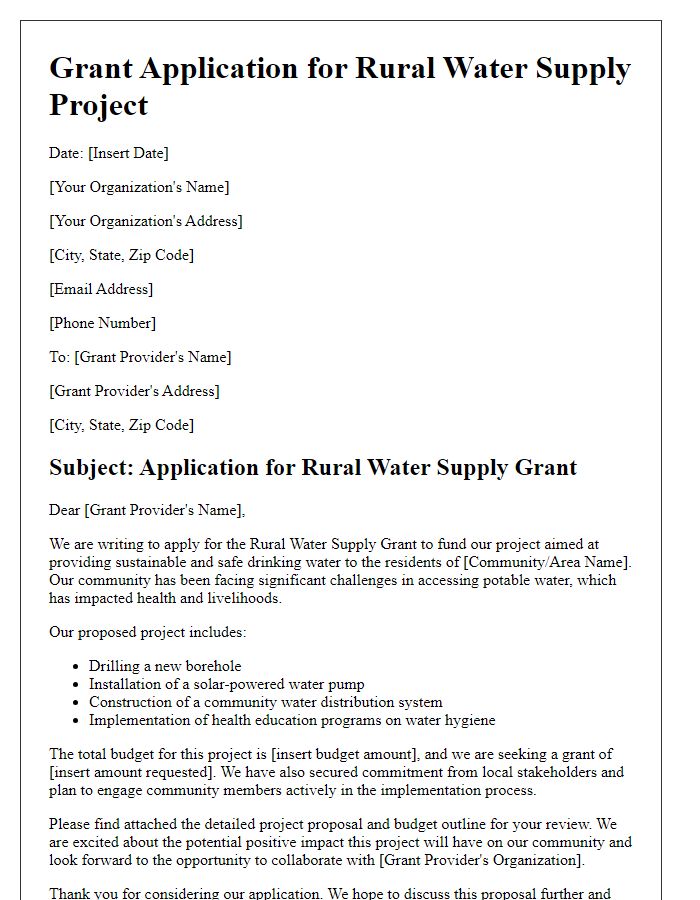
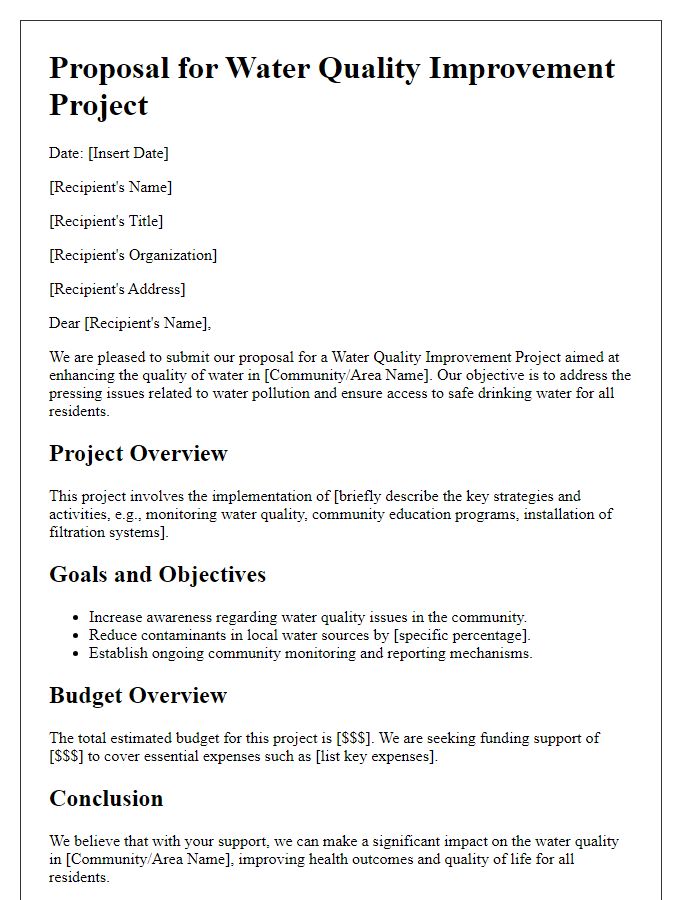
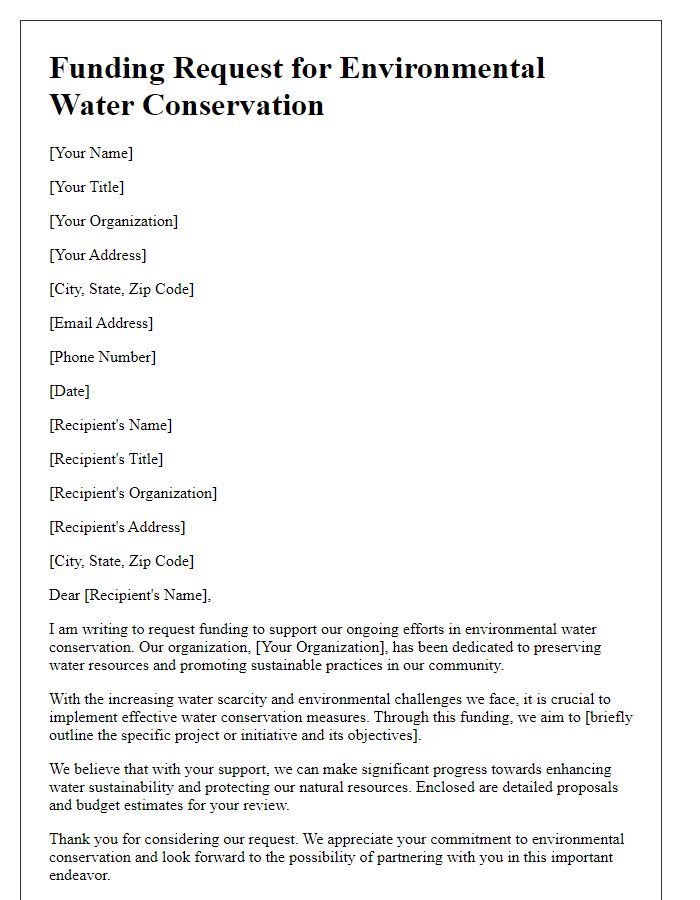
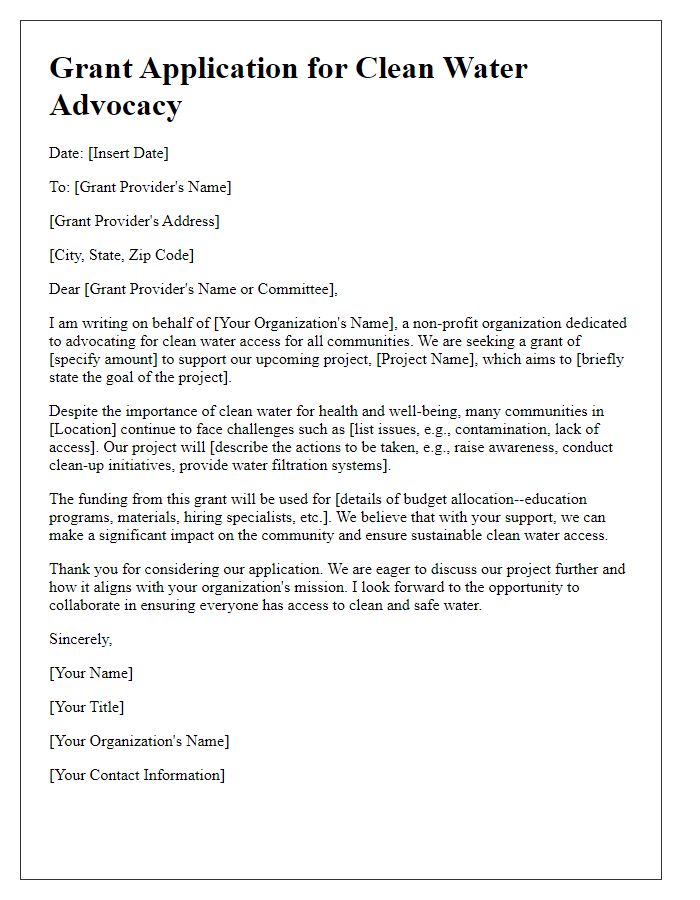

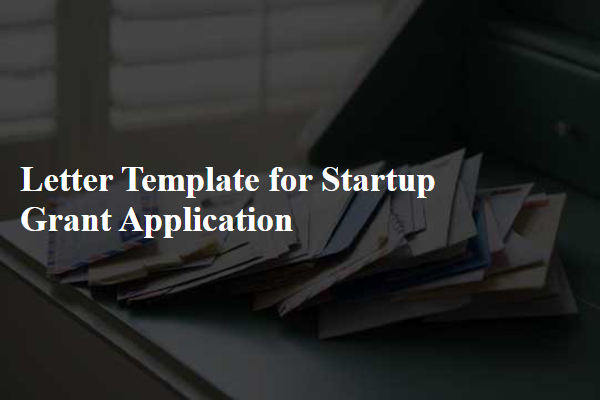
Comments